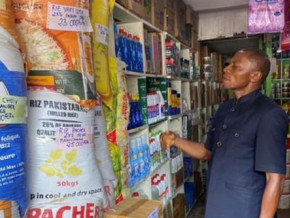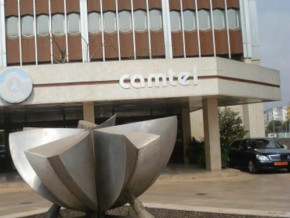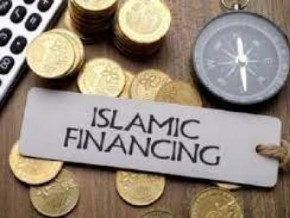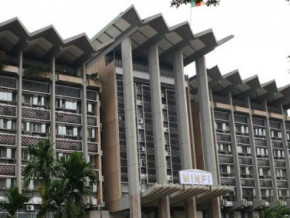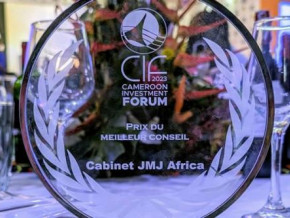
Cameroon: Socapalm pleading with the government to get an increase higher than 30% on the price of palm oil
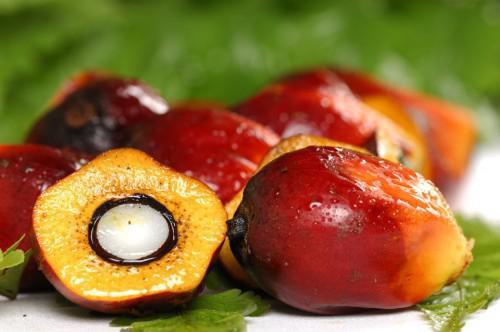
(Business in Cameroon) - On 11 May 2017, the Managing Director of the Société Camerounaise de Palmeraies (Socapalm), Dominique Cornet, made a request to the Cameroonian Minister of Trade, Luc Magloire Mbarga Atangana, for this government member in charge of approving the price of some mass consumption products, to substantially increase the selling price of crude palm oil to processing industries and households.
Arguing that crude palm oil prices have remained frozen in the country for 10 years, the MD of Socapalm, a company owned by the French-Belgian group Socfin, is proposing to move the selling price to industries from FCfa 450,000 to 600,000 per ton excluding taxes, which would lead to an increase of over 30%. According to the Association des Raffineurs des Oléagineux du Cameroun (Asroc - Association of Oleaginous Refiners of Cameroon), this increase should have an impact on the selling price paid by households, which would then move from FCfa 600 per litre to FCfa 750, an increase of 25%.
According to Socapalm, the necessity of this price increase is justified by the increase in its expenses, the wish to replenish the coffers of the company to launch an investment plan, or the increase in the selling price per ton on the international market to 843 dollars during the first quarter 2017. Reasons dismissed by Asroc.
Indeed, based on the trend in international prices for crude palm oil over the 3 January to 20 June 2017 period, Asroc points out that “contrary to the claims of Socapalm, the average selling price per ton of crude palm oil during the first quarter 2017 was 712,52 dollars and not 843 dollars” as suggested by the leader in the crude palm oil production in Cameroon.
The group of local refiners specifies, moreover, that Socapalm, who is announcing a new investment plan has still not respected the plan drawn up in 2008, which enabled it to increase the selling price for crude palm oil from FCfa 360 to 450. Instead of the planned expansion of the plantations, to increase the production, Asroc even revealed that Socapalm rather used the funds gained during the last price increase, to develop rubber plantations, to the detriment of oil palms.
Commenting on the increase in the expenses invoked by Socapalm, and which would suggest financial difficulties in the company, Asroc reminds that the company declared “profits of FCfa 6 billion in 2016, with the distribution of FCfa 5 billion in dividends”. Indeed, Socapalm rather declared, FCfa 5 billion in earnings after tax at end 2016, in decrease by over FCfa 1 billion compared to the FCfa 6.4 billion earned in 2015. Based on the financial statements of the company, the dividend to be distributed was FCfa 6.8 billion, Socapalm having decided to make a withdrawal from its “retained earnings”, to add to the amount to be shared between shareholders for 2016.
On 27 June, a meeting related to this topic was held at the Ministry of Trade. The following day, a letter from the office of the Prime Minister, was transmitted to Minister Mbarga Atangana, as a report of the “denunciations” contained within. Said correspondence, written on 13 June by an NGO called “Observatoire du développement sociétale” (Social Development Monitoring Centre), accuses the Minister of Trade of jeopardising the work of palm oil producers by authorising imports, while, this NGO reveals, the local production is “sufficient”. However, experts agree on the fact that the production deficit in Cameroon, which peaked at 100,000 tons for year, has now reached 130,000 tons for 2 years.
Even better, this NGO, whose correspondence addressed to the Prime Minister on 13 June has as attachment the letter addressed on 11 May to the Minister of Trade by Socapalm, is practically begging the government to grant to the palm oil market leader in Cameroon, a substantial increase in crude palm oil prices in the country.
Brice R. Mbodiam
Mags frontpage
- Most read 7 days
- shared 1 month
- read 1 month


























